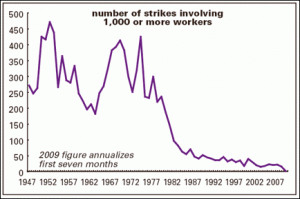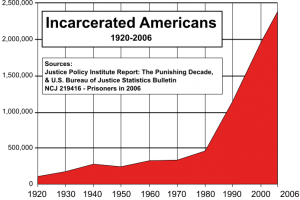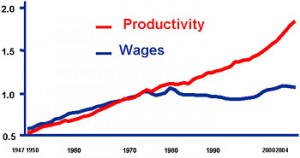As long time readers know, Randall Collins is a sociologist I admire.
One of his books is Macrohistory: Essays In Sociology of the Long Run. The second chapter is a theory of the rise and fall of empires. It’s this theory which Collins used to predict the collapse of the USSR in advance.
Principle 1: Size and resource advantage favors expansion. Expansion and resource advantage includes satrapies and alliances. So Canada’s resources are America’s and so are Europe’s and Japan’s and Australia’s and so on. Athen’s “allies” resources were Athens’, etc…
Principle 2: Geopolitical or “marchland” advantage favors expansion. This means you want to be on the edge, in the corner of the map. Think Rome, on the edge of the Greek world. Russia on the edge of Europe and, indeed, America on the edge, and having no real enemies nearby.
All seven unifiers were from marchland, the central states always lost.
The history of Europe in the 20th century was war between central powers (and the old marchland, Britain), leading to exhaustion and then conquest by the two European marchland states, dividing Europe between Russia and the US. Americans had massive garrisons and overthrew governments who tried to resist them in Europe; they were occupiers just as were the Soviets.
The advantage here is the classical one of corner positions: you don’t have enemies on every side. Russia became a great power largely by having gunpowder weapons and expanding against people who didn’t, while having to defend only one border against European nations. America, likewise, but with very little real risk from advanced nations once the revolution was gone (Canada was too sparsely populated, and Mexico/Spain were in radical decline.)
Principle 3: Interior states tend to fragment when not conquered by marchland states. Collins gives examples, “this happened in China during several interdynastic periods, in Kievan Russia, in the Balkans after the decline of the Ottoman and Austrian Empires, and when the medieval Holy Roman Empire fragmented in the kleinstaaterei of Germany and Italy. Fragmentation occurs because interior states become militarily weakened states incapable of controlling secessions.
Basically, you’ve got potential allies and enemies on every side, and you tend towards balance of power politics and defensive postures. Even though central states tend to be on rich land, needing to defend against so many possible enemies leads to exhaustion, and they can’t handle revolts. Alternatively, though Collins doesn’t mention it, you can have self-disarmament in a successful balance of power regime, such as happened in the EU and if someone decides to take advantage of it, it may be too late to rearm.
Principle 4: Cumulative processes bring periodic long-term simplificiations, with massive arms races and showdown wars between a few contenders.
The first three rules lead to a couple large states becoming powerful (or putting them into alliances that amount to the same thing, as with Athens and the USA), then those two powers have a showdown. Sometimes it’s two marchlands who have conquered central areas (as with the USSR and America), sometimes it’s a peripheral state versus a central state which has conquered other central states (Britain v. Germany or Britain v. France), and sometimes to it’s a marchland just conquering the center as with the Mongols and China (though the Mongols conquered the Arab/Muslim center as well.)
These periods generally have huge arms races and buildups, which may or may not go to a showdown war. The US and USSR did not have their showdown war, but Athens and Sparta did. The competition, even if it doesn’t go to war can lead to both parties essentially losing, as with Germany and Britain in the two world wars. Britain’s “victory” was the loss of their empire and almost all their power and slow long term decline from that point as a manufacturing power, winding up a financialized satrapy of the real winner, the US.
The collapse of Britain, France and Germany allowed the US and the USSR to expand into what amounted to a vacuum.
Principle 5: Overextension brings resource strain and state disintegration.
Collins writes “the further military power is projected from the home base, the higher the costs.”
It’s this that made Paul Kennedy in his “Rise and Fall of the Great Powers” think that the US was due to collapse. He was right, but what he didn’t see was that the USSR was under even more resource pressure, and had a smaller resource base. Remember that Nixon going to China turned Russia’s eastern border into a real worry, and they had to move large numbers of troops there and keep them ready for a potential war. Combined with the Warsaw pact and allies having less resources and people than the US, NATO and other allies and Russia was under more resource strain than the US with its widespread bases.
The odd thing here, as Kennedy showed, that empires expand and get more resources, but the cost of getting the resources expands faster than the resources gained.
Though Collins doesn’t discuss it here I’d say there are other processes. Empires tend to ship their production to the provinces. They financialize. They have inflated real-estate and other prices which drives out real production (Spain and the treasure fleets is the extreme example, but it can clearly be seen in 20th century America and 19th century England, and I bet it was visible in Periclean Athens.)
Concluding Remarks
These are the five principles of Collins basic geopolitical model. They were used to predict the collapse of the USSR, in advance, and they backfit quite nicely onto a large number of civilizations’ history.
One might wish to extend this to the current situation, evaluating China and its junior partner Russia in their conflict against the West. Who has the size and resource advantage (resources in the modern world include manufacturing capacity and tech). Which has more of a marchland advantage? (Remember, if the US feels it has to defend something, the mainland advantage only partially applies, and then there’s the question of hypersonic missiles and so on.)
I don’t see an interior state fragmentation process going on that matters, but maybe I’m missing it?
Is there an arms race going on? Will it lead to a direct war? Who will use less of their resources to maintain that arms race while remaining militarily viable?
Who is more in overextension? The US and allies or China and Russia?
I may write an article on this, but I think most readers can work thru it themselves and will find it more valuable to do so than to read me doing it.



